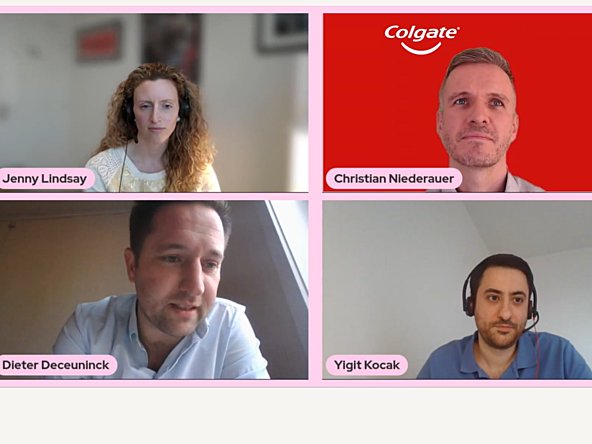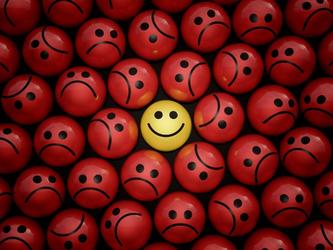How to translate happiness into commercial advantage

To feed the session, held during the MRS Impact conference 2022, Lindsay explained that original research had been conducted with consumers across four markets – the US, the UK, China and Brazil – in order to explore different dimensions of happiness.
She began by running a show reel with comments from consumers on happiness: in the US, a female participant said it equated to being anywhere with her daughter and family, especially her little grandson. For a Brazilian respondent, happiness was linked to who you interact with and your environment.
Another participant from the same country put a more materialistic spin on the question by equating happiness with having a house and a car, as well as money saved in a bank account. A respondent from the UK said his happiness was as simple as being at home with his cat. Others mentioned a walk on the beach, or basic activities such as eating and sleeping.
For Yigit Kocak, global strategy & insights manager at Mondelez, “happiness is quite a diverse notion”. Christian Niederauer, director of strategic insights and consumer affairs at Europe Colgate-Palmolive, said the fact that happiness is often linked to food resonated personally with him.
Meanwhile, Dieter Deceuninck, global director of strategy and insights for waters and aquadrinks at Danone, declared that he was struck by “the small pleasures of everyday life, whether that’s on an individual basis or in the context of a family, like seeing your child take their first steps.”
Looking at the top line research, Niederauer referenced some of the principal drivers of happiness by country: “In the UK and US, having alone time is very important, so for instance listening to music or being with one’s pet. In contrast in China and Brazil we hear comments around wealth and success, so perhaps a bit more materialistic. Happiness appears to be a very serious, complex topic.”
What leapt out at Deceuninck was “the joy of everyday life, living in the here and now, connecting with people after the pandemic.” Niederauer said it reminded him of an experiment that Colgate conducted once the first wave of lockdown was over. “We got a camcorder and asked people what the first thing that they wanted to do was and everyone smiled because they realised that they were free to do something they hadn't done for a long time.”
Kocak talked about the connection across all the markets between happiness and food, noting that in his opinion it was open to interpretation. “This can be broken down in different ways: people can be happy because they ate something tasty, or because they ate something healthy and they are looking after themselves. They also talk about the context a lot and it’s important to connect with those contextual drivers.”
Lindsay picked up on the fact that the main emotions she saw on the reel were not the ones she had expected to see. “Rather than joy and elation, which I thought would be the predominant emotions, I saw more relaxation and calm come through.” She then asked the panel what they felt were the primary implications of the research for their individual brands.
“A key driver for us is physical health as that is something that we can actively have an influence on”, commented Niederauer. “We run a health education programme called, “Bright Smiles, Bright Future” and that is very much connected to our brand’s core belief that it’s all about optimism and how everyone deserves a future they can smile about. It’s actually part of our brand logo, the white stripe is a smile.”
Deceuninck described brands as “enablers of people’s happiness”, adding: “it’s important to help people find the purpose and meaning in their lives; it’s established at a certain level, but we haven’t reached the full potential of it yet, it’s an ongoing quest.”
He gave the example of the Evian brand: “it helps people connect with their health as it has the right balance of minerals and so on. There are lots of messages around telling you to be someone else, but we promote the importance of being yourself and staying true to that idea.”
Kocak said he believed that collective drivers are gaining in importance. “Factors such as environmental issues and sustainability are becoming essential to our concept of happiness and emotional satisfaction.”
Lindsay then asked the group if they felt there were any brands out there that were leveraging the concept of happiness in an inspirational way.
Deceuninck mentioned the Coca Cola brand’s Innocent smoothies and said he admires how it taps into the idea of self-sufficiency and the level of control that people have over what they consume. “It’s about putting you more in sync with who you ultimately want to be as a human being.”
Niederauer homed in on the Patagonia brand, saying it offers “that feel good factor. Unlike other parts of the fashion industry, which often come under scrutiny because of issues of sustainability. this brand makes people think that they are doing something good for the planet. It takes a broader and more long-term focus on happiness.”
Kocak observed that a major challenge is “to stay relevant” and touched on the concept of consumer empathy. “We may not directly communicate the concept of happiness, but there are different ways of getting across that message. For example, at Cadbury’s in India, we promoted the way we were trying to support our staff during tough times and this was well received by local consumers.”
Summarising the debate, the three panellists had this to say.
Niederauer: “We’re reaching a lot of people, so we have to understand how we can bring happiness to them on a daily basis, what can we contribute. We have to think about how we can make life healthier, as that is a key driver of happiness, and also how we can make it easier, perhaps by making daily tasks more convenient. There can be a lot of complex choice around, so we have to help people to make the right choice.”
Kocak: “As a concept, happiness will continue to evolve based on many things in our society, such as the fallout effect from the pandemic and the introduction of the metaverse. These and many other events will impact on our definition of happiness going forward.”
Deceuninck: “Happiness is a very fertile concept these days, both for marketing and the insights industry. When you accumulate small steps, they become big. We have to be able to identify what the cultural shifts that we are witnessing are all about. This is just the beginning of a lot of new things for the insights profession to unlock and discover what kind of value we can bring to the table.”

We hope you enjoyed this article.
Research Live is published by MRS.
The Market Research Society (MRS) exists to promote and protect the research sector, showcasing how research delivers impact for businesses and government.
Members of MRS enjoy many benefits including tailoured policy guidance, discounts on training and conferences, and access to member-only content.
For example, there's an archive of winning case studies from over a decade of MRS Awards.
Find out more about the benefits of joining MRS here.














0 Comments